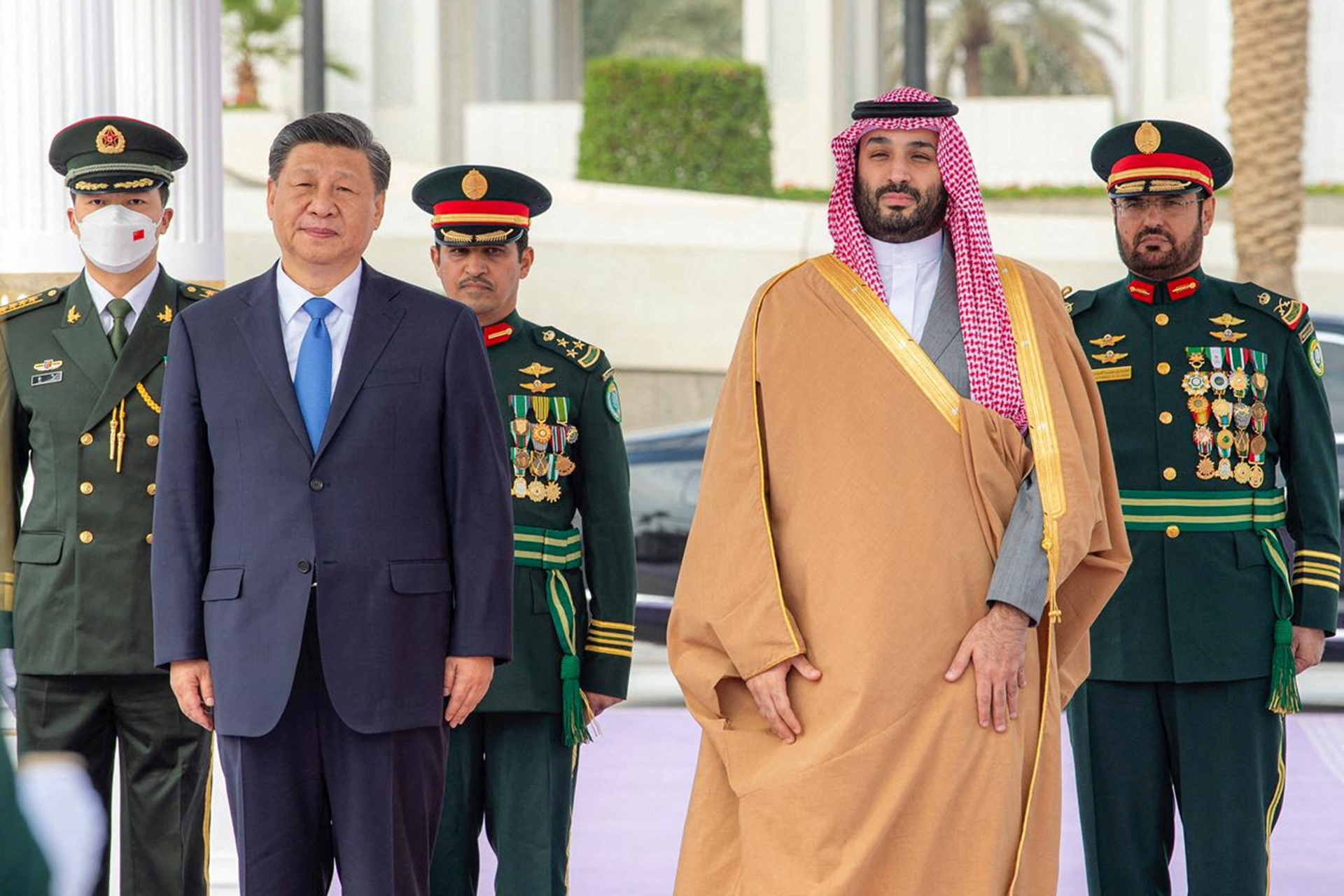In light of the polarization between the major powers in the world, the Chinese-Gulf summits and the Arab-Chinese summits are being held in the Saudi capital, Riyadh. They discussed prospects for cooperation between Beijing on the one hand, and the Arabs, especially the Gulf, on the other.
Saudi Crown Prince Mohammed bin Salman was keen to emphasize the exceptionality of the event by saying at the opening of the Arab-Chinese summit in Riyadh that the summit establishes a new phase in developing relations between Arab countries and China, and strengthening partnership between the two sides.
For his part, Chinese President Xi Jinping, who had participated in a Chinese-Gulf summit before that, said that the Arab-Chinese summit is a pivotal event in the history of the two sides' relations.
In his reading of the context of the Arab-Chinese rapprochement, Professor of Political Science and International Relations, Dr.
Khalil al-Anani said that the Arab countries are trying to diversify international allies in light of the repercussions of the Russian war on Ukraine, and in light of the Arabs, especially the Gulf, feeling abandoned by the American ally, and not being dependent on one pole - Anani adds - it is a smart strategy by the Arabs.
However, he made it clear that what is happening between Beijing and the Arabs is not considered a strategic shift and may be a kind of maneuver by the Arabs to take advantage of the competition between the American and Chinese poles.
For its part, China is seeking to diversify the field of its cooperation with the Gulf and Arab countries, and according to what the President of the Chinese Society for International Studies, Victor Gao indicated in his speech to the "Beyond the News" program, what is important for Beijing is to expand the field of cooperation to include the field of defense and defense technology, and he said that China It has great potential and has no reservations about selling the best military technologies to Arab countries, unlike other countries that refuse to sell advanced military systems.
The Chinese guest does not believe that there are fundamental differences between the Arabs and his country that could hinder their cooperation, stressing that most Arab countries support China's position on the Uyghur issue in the Human Rights Council, and that Western countries and some Islamic countries oppose it.
Washington will oppose the Arab use of Chinese technology
The advisor at the Center for Media and Arab-Russian Studies, Abdulaziz bin Razen, attributes the reasons for the Gulf and Arab orientation towards China and considering it a strategic ally to the fact that this country sits today on the chair of technology and respects international agreements, stressing the existence of cooperation between it and the Gulf states in the military field and may develop later, and he said that The military presence is not evident in the media, but it does exist on the ground.
Regarding Washington's view of the Arab-Chinese and Gulf rapprochement in particular, and its options for dealing with a larger Chinese presence in the region, Al-Anani answers by saying that the Americans, in light of their intense competition with China, will refuse their allies, especially in the Gulf countries, to use Chinese technology because this will affect - from their point of view - security. American nationalist, but pointed out that Washington finds itself today in front of difficult choices.
However, the Gulf countries, in their dealings with China, do not consider the Western reaction, according to what Ben Razen explained, who stressed the independence of the Saudi decision.

